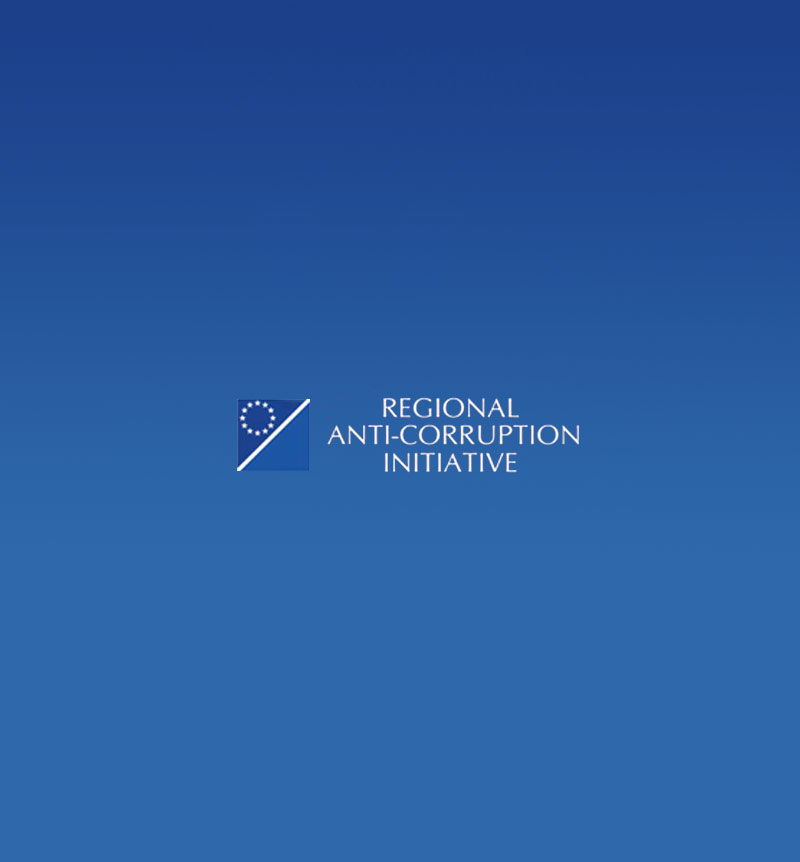RAI Secretariat organized Regional Meeting on Mapping Sectors Prone to Corruption on July 9, 2021.
Through the general support in implementing the Corruption Risk Assessment (CRA) and Corruption Proofing of Legislation (CPL) mechanisms in the first phase of the Southeast Europe Regional Programme on Strengthening the Capacity of Anti-corruption Authorities and Civil Society to Combat Corruption and Contribute to the UNCAC Review Process (2015 – 2020), the sectoral approach was identified as the appropriate method for strengthening the implementation of these mechanisms in targeted jurisdictions.
This meeting was the final step in the process of mapping sectors vulnerable to corruption, after conducting a comprehensive research and organising bilateral consultations with representatives of all jurisdictions targeted by the Southeast Europe – Together Against Corruption (SEE-TAC) Programme (2020 – 2023).
The objective of the meeting was to present findings from bilateral meetings, foster regional consultations and to aim towards achievement of the regional consensus on the two sectors, where the SEE-TAC project interventions will have the highest impact.
After welcoming speech given by Ms. Aneta Arnaudovska, Senior Advisor in RAI Secretariat, Expert Team briefly pointed out the most important conclusions drawn from bilateral meetings. After the meetings, representatives from targeted jurisdictions nominated four sectors that are considered to be prone to corruption and that project activities should be focused on.
All targeted jurisdictions emphasized that the education sector should be the focus of project interventions. The health sector has been in the focus of interest recently, especially due to the COVID-19 crisis. Corruption in public procurement and public enterprises also raises concerns among representatives of targeted jurisdictions.
Expert Team provided proposals on the two corruption-prone sectors of common interest for all targeted jurisdictions, based on described criteria for mapping and responses of the beneficiaries.
The education sector is definitely one of the sectors on which project activities should be focused on. Having in mind the diversity of the education system and results of bilateral consultations – the primary focus should be on higher education.
Despite being nominated by the beneficiaries, the health sector should be avoided due to the currently high exposure created by the COVID-19 crisis, as well as the public procurement sector as this area has crosscutting nature and is the subject of other projects in targeted jurisdictions. In their opinion, there are high and objective risks that competent ministries and health care institutions in these jurisdictions would not have sufficient capacities to participate due to the crisis.
When it comes to mapping the second sector, the Expert Team suggested to consider the public enterprises sector, because of its significance for citizens, findings from EC Progress Reports, and other relevant surveys.
During the discussion, representatives of all targeted jurisdictions agreed on the sector of higher education.
According to the representatives of certain jurisdictions, the sector of public enterprises has not been the subject of other projects so far, so it can be considered as a good choice for implementing project activities. Participants, who have had experience with the implementation of anti-corruption activities in the public enterprises sector, expressed their views on potential risks that may be faced.
The discussion concluded with the confirmation of the education sector and the public enterprises sector as sectors that will be in focus during the project implementation and where project activities should give the best results.
Ms. Arnaudovska emphasized that, following the agreement on the targeted sectors, the SEE-TAC activities will focus on modelling and implementing sectoral approach, which was identified as the appropriate method for strengthening the implementation of CRA and CPL mechanisms in the targeted jurisdictions.
What is important from the RAI’s perspective is for the jurisdictions to benefit from the regional cooperation by sharing the knowledge, good practices, experiences, but also from the social gatherings. The RAI platform will be used as a basis for networking among the anti-corruption bodies and the key institutions in the targeted sectors.






